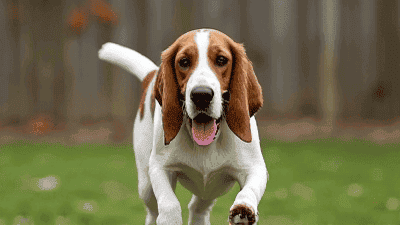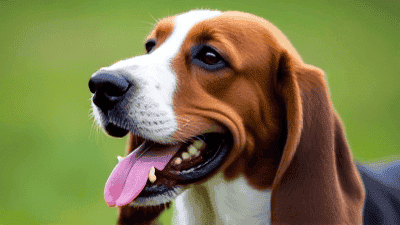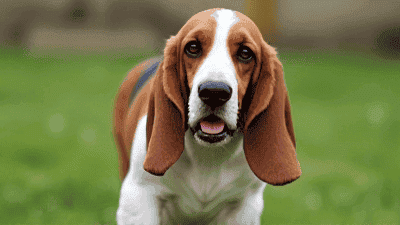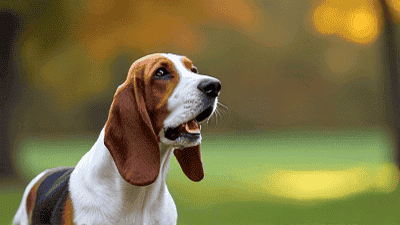
Basset Hounds are one of the most recognizable dog breeds, thanks to their long ears, droopy eyes, and short legs. Known for their friendly and laid-back personalities, Basset Hounds make wonderful companions for families and individuals alike. However, their stubborn nature can pose challenges when it comes to training, and their unique physical characteristics require special attention to maintain their health.
The Basset Hound is a breed with a rich history that dates back to 16th-century France. The name "Basset" comes from the French word "bas," meaning low, which refers to the breed’s short stature. Basset Hounds were originally bred for hunting small game, particularly rabbits and hares, due to their excellent sense of smell and ability to track scent trails.
Basset Hounds are descendants of the Bloodhound, which explains their keen sense of smell. Over time, breeders focused on developing their short legs and long ears, which helped them stay close to the ground and trap scents. The breed was officially recognized by the American Kennel Club (AKC) in 1885 and has since become a beloved family pet and show dog.

Basset Hounds are known for their gentle and friendly nature. They get along well with children, other pets, and strangers, making them excellent family dogs. Their laid-back demeanor makes them great companions for both active households and those who prefer a more relaxed lifestyle.
Despite their easygoing nature, Basset Hounds can be notoriously stubborn. This trait stems from their hunting background, where they were required to make independent decisions while tracking scents. While this independence can be endearing, it can also make training a challenge.
Basset Hounds are incredibly loyal to their families and thrive on human companionship. They love to be included in family activities and can become quite attached to their owners. Their affectionate nature makes them wonderful lap dogs, despite their size.
Begin training your Basset Hound as early as possible. Puppies are more receptive to learning and can develop good habits before their stubborn streak fully emerges. Focus on basic commands like sit, stay, and come.
Basset Hounds respond best to positive reinforcement techniques, such as treats, praise, and play. Avoid harsh training methods, as they can cause your dog to become fearful or uncooperative.
Basset Hounds are not the easiest breed to train, but patience and consistency are key. Use short, engaging training sessions to keep your dog focused, and repeat commands regularly to reinforce learning.
Expose your Basset Hound to different people, animals, and environments from a young age. Proper socialization helps them become well-rounded and confident dogs.
If your Basset Hound refuses to follow commands, avoid forcing them. Instead, take a break and try again later. Using high-value treats or toys can help motivate them to cooperate.

Basset Hounds are not as high-energy as some other breeds, but they still require regular exercise to stay healthy and prevent obesity. Aim for at least 30 minutes to an hour of physical activity each day, such as walks, playtime, or light hikes.
Basset Hounds are intelligent dogs that enjoy mental challenges. Puzzle toys, scent games, and training exercises can keep them engaged and prevent boredom.
Due to their short legs and heavy bodies, Basset Hounds are prone to joint issues. Avoid high-impact activities like jumping or running on hard surfaces, and monitor your dog for signs of fatigue or discomfort during exercise.
Basset Hounds are prone to certain health conditions due to their unique physical characteristics. These include:
Basset Hounds have short, dense coats that require minimal grooming. Brush them weekly to remove loose hair and distribute natural oils. Bathe them as needed to keep their skin and coat healthy.

Choose a high-quality dog food that meets your Basset Hound’s nutritional needs. Look for formulas that are rich in protein, healthy fats, and essential vitamins and minerals.
Basset Hounds have a tendency to overeat, which can lead to obesity. Follow feeding guidelines based on your dog’s age, weight, and activity level, and avoid free-feeding.
Feeding your Basset Hound table scraps can contribute to weight gain and digestive issues. Stick to dog-safe treats and foods.
Basset Hounds are indoor dogs and thrive in a comfortable, climate-controlled environment. They enjoy lounging on soft beds or sofas, so provide plenty of cozy spots for them to relax.
Basset Hounds have a strong sense of smell and may wander off if they catch an interesting scent. Always supervise them outdoors and ensure your yard is securely fenced.
Basset Hounds are excellent family dogs and get along well with children and other pets. They are gentle and patient, making them great playmates for kids.
Fact: While Basset Hounds enjoy lounging, they still require regular exercise and mental stimulation to stay healthy and happy.
Fact: Basset Hounds are intelligent but stubborn, which can make training a challenge. Patience and consistency are key to success.
Fact: While their coats are low-maintenance, Basset Hounds require regular ear cleaning and occasional bathing to stay clean and healthy.
Basset Hounds are lovable, loyal, and full of personality, but their stubborn nature and unique health needs require careful attention from their owners. By understanding their temperament, providing consistent training, and addressing their health care needs, you can ensure your Basset Hound lives a happy and fulfilling life. Whether you’re a first-time dog owner or a seasoned pet parent, embracing the quirks of this charming breed will lead to a rewarding companionship. Remember, with patience, love, and proper care, your Basset Hound will be a cherished member of your family for years to come.